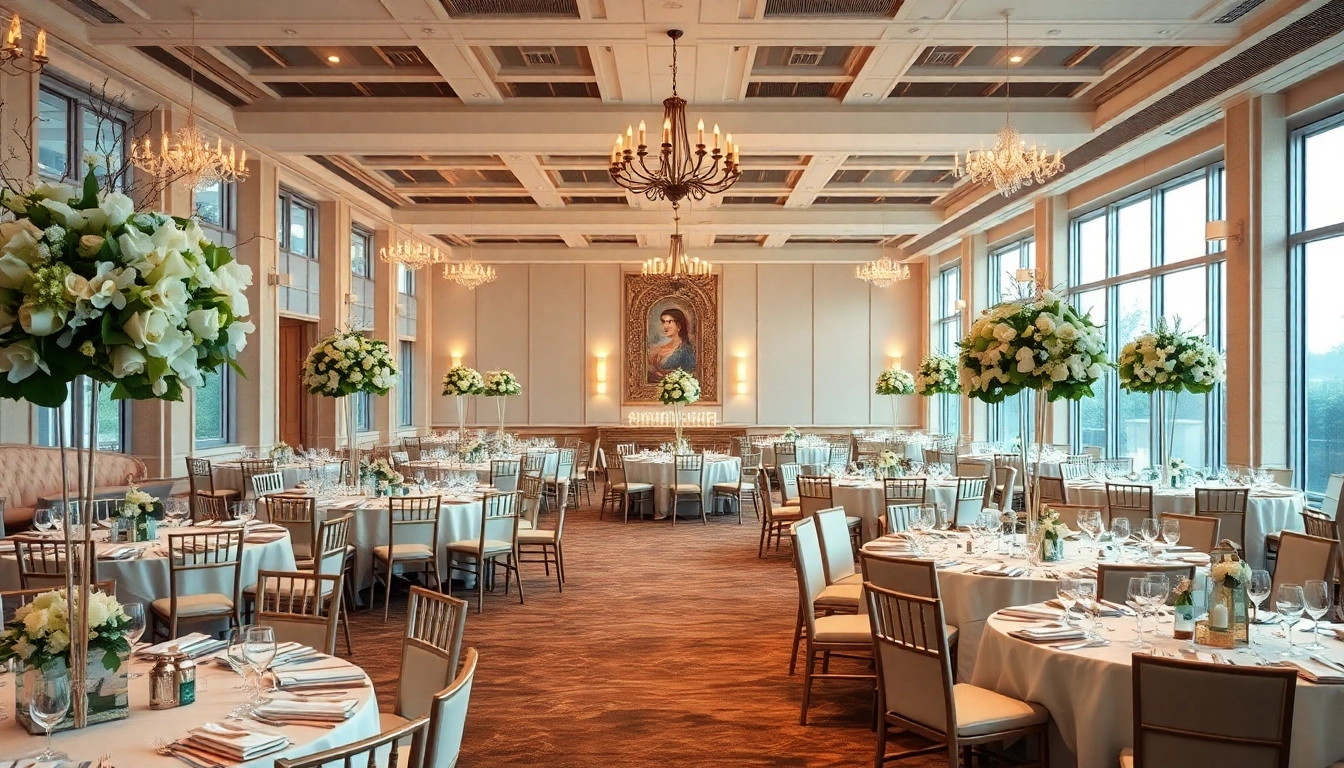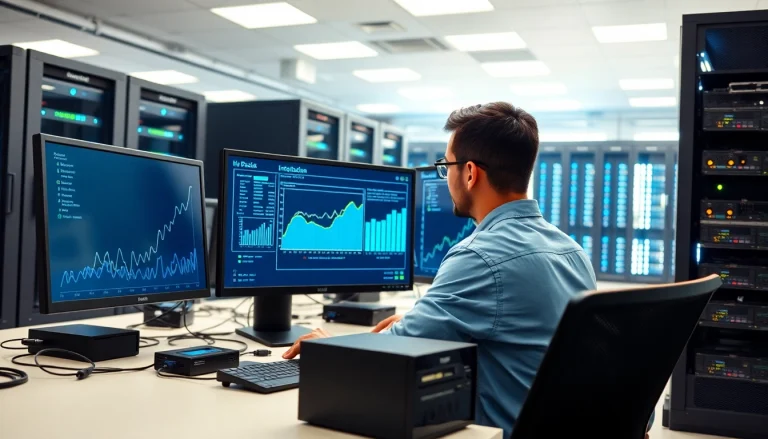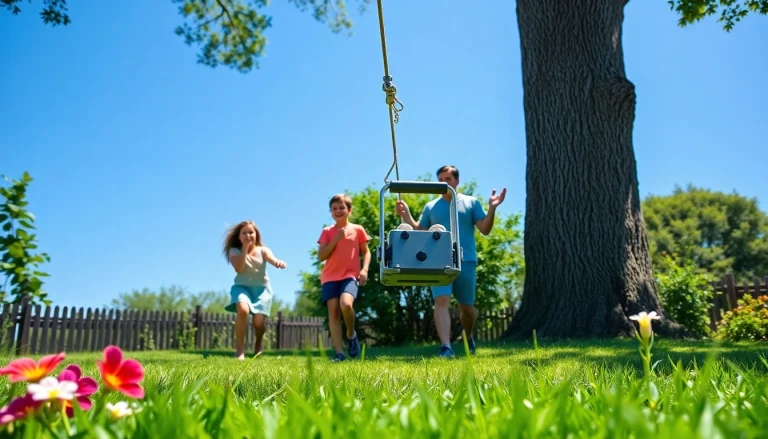
Understanding Event Space Options
When it comes to hosting an event, choosing the right event space can make or break your gathering. Understanding the variety of options available is crucial to identifying the venue that aligns best with the needs of your event, whether that might be a corporate meeting, wedding, or private celebration. In this article, we’ll delve into the different types of event spaces, considerations regarding capacity, and factors that contribute to location selection.
Types of Event Space Available
Event spaces come in various shapes and sizes, catering to diverse needs and preferences. The main types include:
- Convention Centers: Large venues designed to host multiple events, including conventions and trade shows. They typically offer extensive facilities, such as meeting rooms, exhibition halls, and catering services.
- Hotels and Resorts: These venues often combine accommodation with event hosting, making them ideal for multi-day conferences or weddings. Onsite amenities like restaurants and spas enhance the guest experience.
- Banquet Halls: Specially designed for formal events like weddings and corporate dinners, banquet halls typically feature dining facilities and ample space for guests.
- Outdoor Spaces: Gardens, parks, and patios provide a picturesque setting for events, offering opportunities to integrate natural beauty into the gathering.
- Unique Venues: Unconventional locations such as museums, art galleries, or historic buildings can create memorable experiences and aesthetic appeal for guests.
Capacity Considerations for Your Event Space
Capacity is a critical factor when selecting an event space. It’s essential to ensure the venue can comfortably accommodate all attendees without feeling overcrowded. Here are some guidelines to consider:
- Assess Your Guest List: Before choosing a venue, draft an estimated guest list to understand the space you’ll require.
- Allow for Comfort: Leave sufficient room for guests to move easily. Consider seating arrangements, whether for dining or presentations.
- Flexibility: Opt for venues with flexible capacity options that can accommodate smaller or larger groups as needed.
Choosing the Right Location for Your Event Space
The location of your event space can significantly impact attendance and the overall experience. Key factors to consider include:
- Accessibility: Choose a location that is easily accessible via public transport and has ample parking.
- Proximity to Amenities: Consider the availability of nearby hotels, restaurants, and attractions for out-of-town guests.
- Safety and Environment: Ensure the area is safe for attendees and presents a welcoming atmosphere.
Key Features to Look for in an Event Space
When exploring potential event space, identifying key features can help in narrowing down your options. A comprehensive understanding of amenities and technological needs can enhance the value of your chosen venue.
Essential Amenities in Your Event Space
Event attendees expect certain comforts and conveniences. Here are some essential amenities to look for:
- Wi-Fi Access: Reliable internet connectivity is crucial for both hosts and attendees.
- Audio-Visual Equipment: Ensure the venue provides necessary technology, including projectors, microphones, and sound systems.
- Catering Services: Venues that offer in-house catering can simplify coordination and help ensure food quality.
- Restroom Facilities: Adequate and accessible restroom facilities are vital for any event.
Accessibility and Convenience in Event Space Selection
Ensuring that your event space is accessible is not only a legal requirement but also a critical aspect of guest experience:
- ADA Compliance: Verify that the venue meets accessibility standards for individuals with disabilities.
- Transportation Options: Provide information about local transport links and parking availability for convenience.
- Signage: Clear signage directing guests to various parts of the venue can minimize confusion.
Technological Needs for an Event Space
In today’s digital world, technological provisions can enhance the quality of events significantly. Key technology considerations include:
- AV Integration: Ensure the venue has integrated audio-visual technology to facilitate presentations and entertainment.
- Streaming Capabilities: With the rise of hybrid events, look for venues that can accommodate live streaming or virtual attendance.
- Charging Stations: Providing charging stations can improve guest convenience and keep phones and devices powered throughout the event.
How to Plan Your Event in a Chosen Event Space
Once you’ve selected an appropriate event space, careful planning is essential. From timelines to vendor coordination, here’s how to make the most of your event space.
Creating an Event Timeline within Your Event Space
Establishing a clear timeline ensures everything flows smoothly on the day of your event. Consider the following steps:
- Event Schedule: Create a detailed schedule including start times for each segment of the event, such as guest arrivals, speeches, and activities.
- Rehearsals: Schedule time for rehearsals, particularly if you have speakers or performances.
- Check-In Processes: Establish check-in times and procedures for guests to avoid long lines.
Coordinating Vendors in Your Event Space
Vendor coordination can significantly influence the quality of your event. Here’s how to manage vendor relationships effectively:
- Clear Communication: Communicate details regarding access, power supplies, and setup times to all vendors involved.
- Vendor Contracts: Ensure that all contract terms are clear and agreed upon well in advance of the event.
- On-Site Coordination: Assign a point person to oversee vendor operations and handle any on-the-spot issues that arise during the event.
Setting Up the Layout of Your Event Space
Event layout impacts guest interaction and experience. Key considerations for setting up your layout include:
- Seating Arrangements: Depending on the type of event, choose a layout that facilitates your goals, such as a theater, classroom, or round tables.
- Traffic Flow: Plan a layout that allows for easy flow of guests, minimizing congestion.
- Accessibility Features: Ensure that pathways and exits are clearly marked and accessible to all guests.
Maximizing Guest Experience in Your Event Space
The ultimate goal of any event is to create a memorable experience for guests. Here are strategies to enhance their experience in your event space.
Aesthetic Enhancements for Your Event Space
The ambiance of an event significantly affects how attendees perceive it. Key aesthetic enhancements include:
- Decor and Theming: Align decor with the event theme to create a cohesive atmosphere.
- Lighting: Utilize lighting strategically to highlight areas of the space and create a comfortable mood.
- Floral Arrangements: Fresh flowers can add a touch of elegance and color to your event.
Engaging Activities to Incorporate into Your Event Space
Keeping guests engaged is critical for a successful event. Consider incorporating the following activities:
- Ice Breakers: Implement fun ice-breaking activities to encourage networking and interaction among guests.
- Interactive Stations: Set up activity stations related to your event’s theme to keep guests entertained.
- Live Entertainment: Consider live performers or speakers to enhance the experience and keep energy levels high.
Providing Comfortable Amenities in Your Event Space
Guest comfort is paramount. Here’s how to ensure a pleasant experience:
- Seating Comfort: Choose seats that provide comfort for the duration of the event.
- Temperature Control: Ensure the venue can adjust temperature settings according to guest comfort.
- Refreshments: Offer beverages and snacks throughout the event to keep guests refreshed and engaged.
Post-Event Considerations in Your Event Space
The work doesn’t end once the event is over. Assessing the event’s success and preparing for future gatherings are essential tasks. Here’s what to focus on:
Post-Event Feedback Collection from Your Event Space Attendees
Gathering feedback can provide invaluable insights for future events. Consider these methods:
- Surveys: Prepare and distribute surveys to collect feedback from attendees about various aspects of the event.
- Follow-Up Communication: Send follow-up emails thanking attendees while including links to feedback forms.
- Social Media Engagement: Encourage attendees to share their experiences on social media and tag the event.
Evaluating Success Metrics from Your Event Space
Evaluating the success of your event involves analyzing key performance metrics:
- Attendance vs. RSVP: Compare the actual number of attendees against the initial RSVP numbers.
- Engagement Levels: Measure the level of engagement during the event through participation and interaction rates.
- Revenue Analysis: For paid events, analyze gross revenue against expenditures to determine profitability.
Preparing for Future Events in Your Event Space
Utilizing insights gained from each event to improve future gatherings will enhance your planning process:
- Review Feedback: Take feedback seriously and identify areas for improvement.
- Document Lessons Learned: Keep a record of what worked well and what challenges arose during the event.
- Build Relationships: Foster relationships with vendors and venues for smoother planning in the future.






